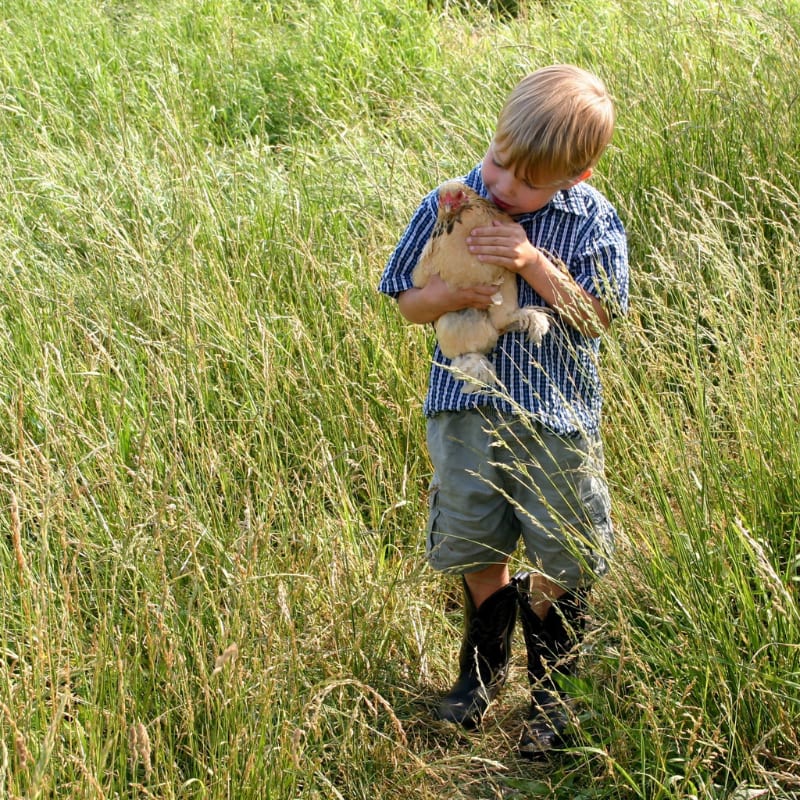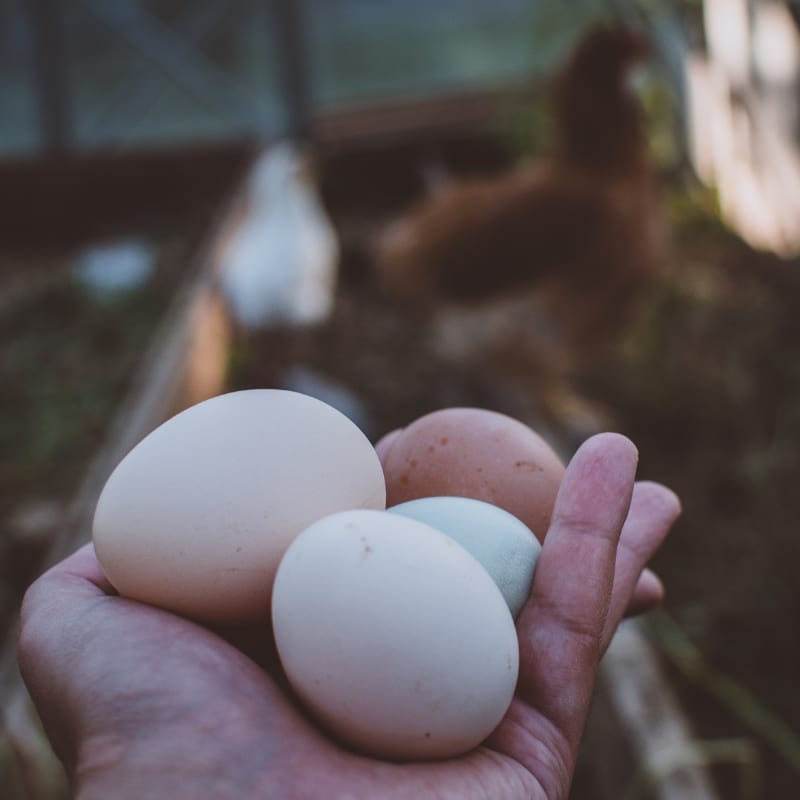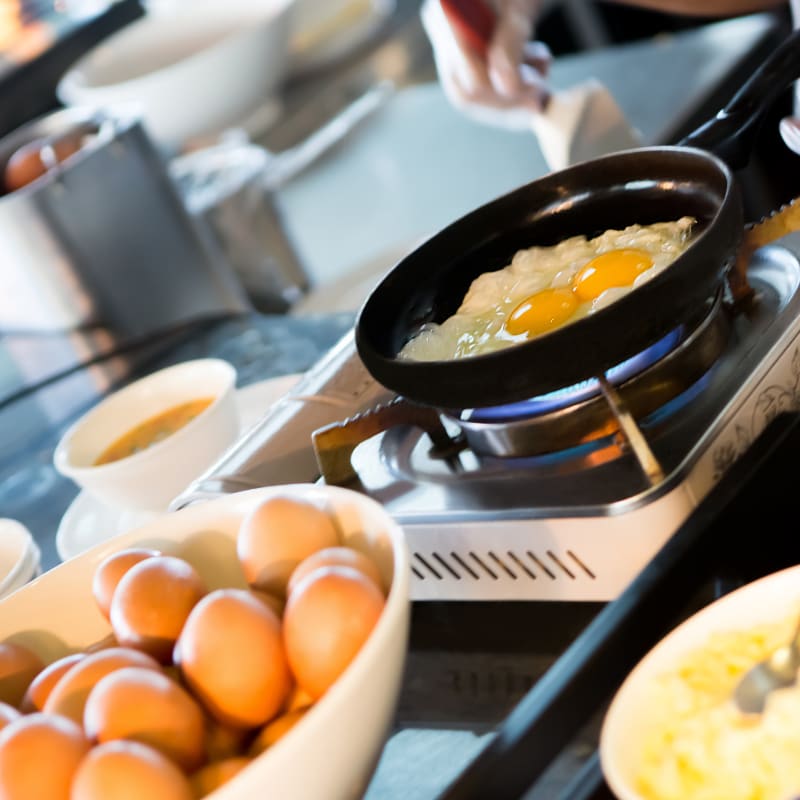Backyard Chicken Safety Guidelines: 3 Main Tips
We love our chickens just as much as we love any of our other pets! It's fun to love on them just like you would a cat or dog, but chickens are a bit different in the germs they carry. Because of this, they have to be treated differently.
Below are our three most important guidelines for keeping you and your chickens safe.
1: How to Hold Backyard Chickens

In terms of your backyard flock, holding chickens or other poultry is best done in a gentle, supportive manner. You should always place one hand under their chest to support their weight. You should also hold them close to your chest to keep them from flapping their wings too much.
Be sure not to squeeze them too hard! Their unique respiratory system utilizes air sacs throughout their entire body which can easily be compressed when too much pressure is applied. Be especially careful with baby chicks since they're even more fragile than adult chickens.
2: Wash your Hands and Keep your Distance
Holding chickens and baby chicks properly helps ensure that your birds feel safe and secure, but what about you? After handling birds, you should always practice good hygiene. Use soap and water to wash your hands thoroughly. Use hand sanitizer if soap and water are not readily available.

Salmonella infection is one of the most talked-about dangers of handling poultry. Hand washing after being in contact with poultry is essential for preventing salmonella outbreaks!
Although they may seem cuddly, snuggling or kissing members of your flock can be dangerous because it can transmit salmonella germs to your mouth. Birds carry other harmful germs in their mouths, on their skin and feathers, and on poultry droppings, which can be harmful to humans. Additionally, children younger than 5 years of age and adults older than 65 as well as any individual with a compromised immune system should minimize their contact with live birds to ensure their safety!
3: Keep the Coop Clean
Last, but certainly not least, birds living in a clean environment are much healthier and safer to handle. Litter or flooring should be kept dry with minimal chicken manure and nesting areas should always have fresh bedding.
Any equipment used inside of your coop or poultry houses should be cleaned before being taken inside. This will help prevent the spread of pathogens to your home. These pathogens are normal for chicken environments but can negatively impact the your home, as some of them can cause illnesses in humans.
As a general rule, feathered friends make a great addition to any family. However, when welcoming and caring for them, it is important to keep their safety and your own at the forefront of your mind!
Safety with Fresh Eggs

One of the best parts of having chickens and other poultry is that they lay eggs. There's something very special about being able to cook and bake with fresh eggs from your own backyard!
You should wash your hands before and after collecting eggs from your hens. When you collect your eggs, be sure to throw away any eggs with broken or cracked shells. Unfortunately, these may not be safe to eat.
You can store your eggs in a carton or another container that will gently hold the eggs without putting pressure on them.
You'll need to clean the eggs with a dry brush or cloth. Don't scrub the eggs with anything dirty or damp. Once eggs get wet, the protective layer on the egg will be removed. Bacteria can then pass through the shell, and you'll have to refrigerate the eggs. Eggs that stay dry and are cleaned with a dry cloth can stay out of refrigeration for up to a month!
How to Cook Eggs from Backyard Chickens

Eating undercooked eggs has been related to outbreaks of salmonella infections. It's recommended to cook eggs until the yolk is hard, and cook any food containing eggs to at least 160 degrees Fahrenheit. Undercooked eggs are definitely delicious, just be careful and know that fully cooking eggs is the safest way to consume them.
We're your backyard poultry resource!
Raising backyard chickens is such a joy. We just went through the process of building a coop and we're raising chickens of our own now! We want to support you and your coop however we can. You can subscribe to our YouTube channel here to get the latest updates on our videos and blogs!
If you have any questions about raising backyard chickens or our products, reach out to us at [email protected] or give us a call at 800-608-3755.








